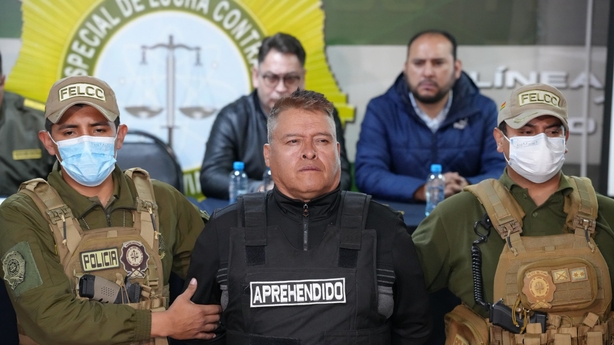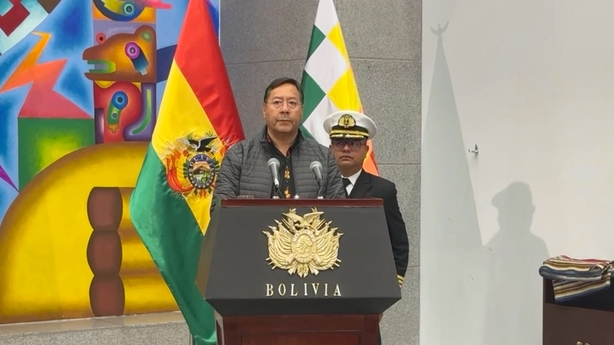The Bolivian government had intelligence that a coup attempt could occur before the country's top military commander and his troops forced their way into the presidential palace, a senior government minister has said.
The failed coup yesterday happened over a few hours and provoked swift condemnations from world leaders, raising fears that democracy in the Andean nation remains at risk.
In an interview with local broadcaster Unitel, Interior Minister Eduardo del Castillo said that President Luis Arce had received reports about "destabilisation attempts", though he cautioned that the government did not know more at the time.
The mobilisation of military units saw the country's military commander gather troops in the main square of capital La Paz, ramming a palace door with an armored vehicle to allow soldiers to rush into the building.
The soldiers ultimately withdrew and police regained control of the plaza, with Mr Arce slamming the coup attempt and swiftly naming a new top general.
The former commander, Juan Jose Zuniga, was arrested as well as former Navy commander Juan Arnez Salvador, Mr del Castillo said, noting that about a dozen military officers had been detained and could face prison terms of between 15 and 30 years.
Mr Zuniga had recently said that the president's former mentor-turned-political-rival, ex-president Evo Morales, should not be able to run again for president and threatened to block him if he attempted to do so.
The commander had been told on Tuesday evening that he would be stripped of his position as his conduct "was not in line with the constitution", according to Mr del Castillo.

He recalled that Mr Zuniga reacted calmly to the news.
"But no one could have imagined that the next day, before the official handover in posts, there would be a failed coup in our country," he said.
Late yesterday, Minister of the Presidency Maria Nela Prada told reporters that Mr Zuniga confessed to police and said the coup attempt failed because reinforcements did not arrive in time.

But as he was being arrested, Mr Zuniga publicly said that he had been instructed to carry out the coup at the president's direction in order to boost the president's popularity, which Ms Prada later denied.
Calls for calm
The US administration of Joe Biden said it was keeping a close eye on events in Bolivia and "calls for calm," according to a spokesperson for the National Security Council.
Condemnations of the troop movements also poured in from across Latin America, with leaders of Chile, Ecuador, Peru, Mexico, Colombia and Venezuela calling for democracy to be respected.
Tánaiste and Minister for Foreign Affairs Micheál Martin said: "Ireland expresses solidarity with the government and people of Bolivia and reiterates unequivocal support for democracy and the rule of law."
Brazil's President Luiz Inacio Lula da Silva wrote on X: "I am a lover of democracy and I want it to prevail throughout Latin America. We condemn any form of coup d'etat in Bolivia."
Spanish Prime Minister Pedro Sanchez called for "respect for democracy and the rule of law," in a message on X.
The Organization of American States (OAS) said the international community would "not tolerate any form of breach of the legitimate constitutional order in Bolivia".

